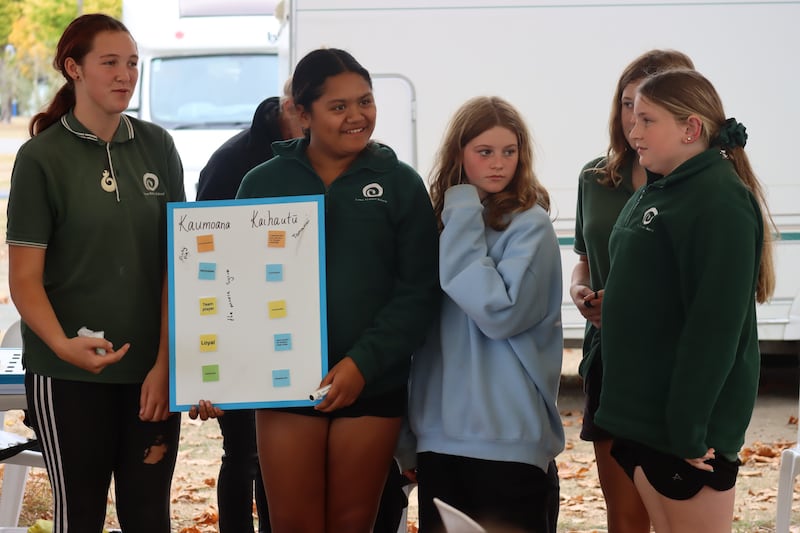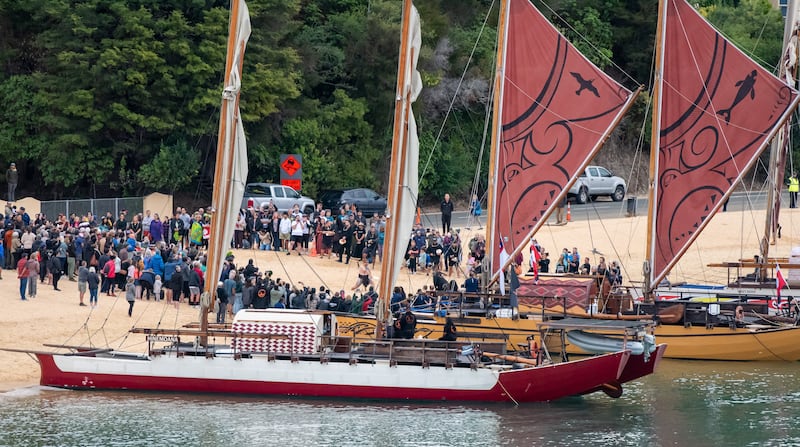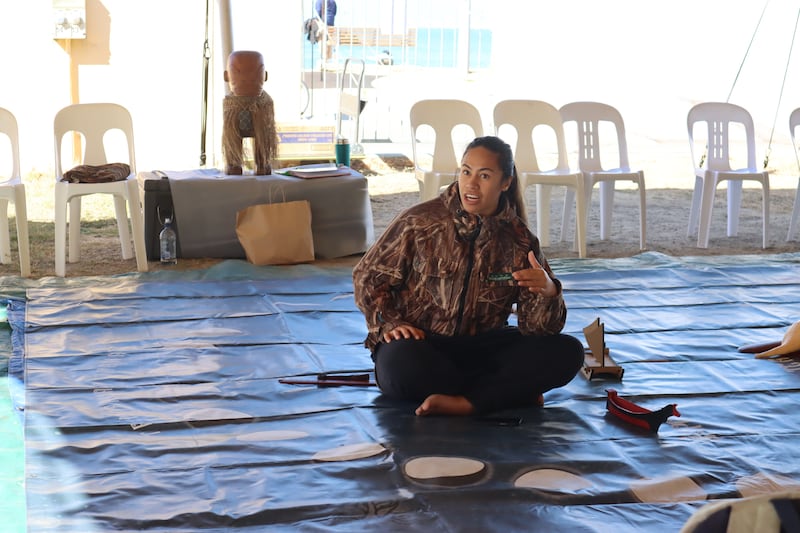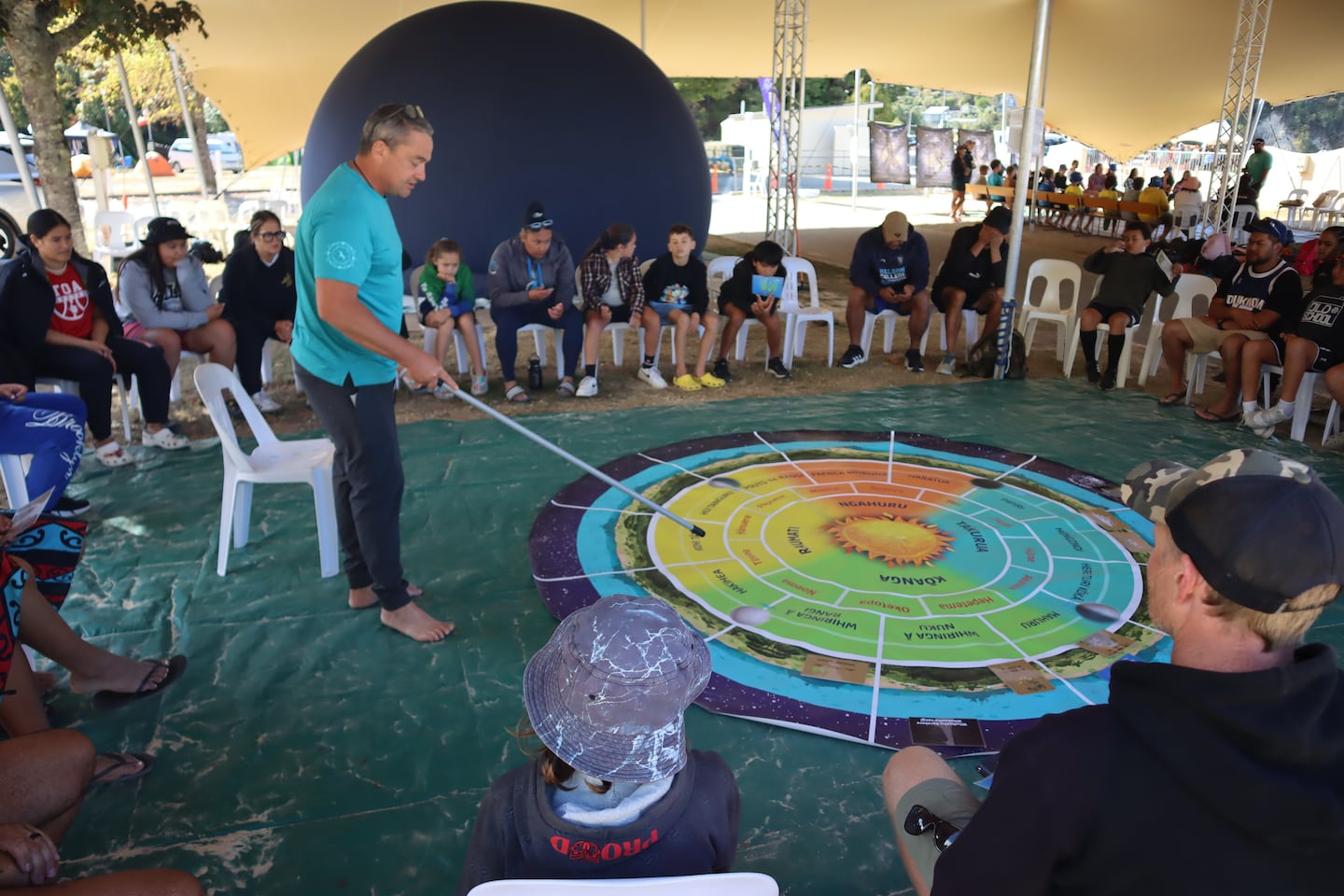Hundreds of tamariki are flocking to learn about waka hourua at the Te Hau Kōmaru National Waka Hourua Festival - which got underway on the weekend and runs through until Sunday - at Kaiteretere in Te Tau Ihu o te Waka a Māui, the top of the South Island.
“The festival has been going great. We’ve had lots of schools come through,” says Te Hau Kōmaru co-chair Iaean Cranwell (Ngāi Tahu).
Around 900 ākonga from local kura are taking part in workshops that share waka and navigation mātauranga at the festival that celebrates the resurgence of traditional double-hulled waka and the revival of kaupapa waka.
“The first three days, we’ve probably had over 500 students come through, learning about the Māori star compass, going into the star domes and learning about the navigation stars that help in sailing waka in and around the Pacific.
“Also learning about the maramataka relating to our whetū, and where the constellations are, and how they are aligned with the movement of Tamanuiterā and the sun and the moon phases.”
The students have been in awe of the experience, with some having never seen waka hourua in real life.
“We’ve had tamariki from the kōhanga reo, and little three, four-year-olds seeing waka. That’s a great start because, hopefully, it’s normalised. They’ll see waka as little nohinohi [’babies’] and when they get bigger this whole kaupapa will grow and it’ll become normalised for them.
“We’ve had kura auraki [English-medium schools] and also kura kaupapa Māori come through, ranging from primary school to secondary school.
“For some, this is the first time they’ve seen waka hourua, especially coming into Kaiteretere here.”

The workshops are a mixture of visual, virtual and hands-on experiences, culminating in an opportunity to go on board the waka.
“The stardome was one of my favorite places because it’s completely dark. You lie down, you hear karakia and as you lie down you watch the stars travel above you. You see all the waka shapes out of the stars, you learn about Tamarereti and Te Waka o Rangi.
“Another one is learning a haka and a waiata regarding all the stars that are used in navigation. That’s another thing they can take away, especially the schools. They can use that inside their learning environment.

“Last but not least, they get to go on the waka. Some got to sail, some didn’t just because of the weather. They get to climb up on the waka because the waka is beached on the foreshore here.
“And they climb up on the waka, they get to look around the waka and see all the sails, go inside the hulls of the waka where the cabins are, where people sleep. So they’re touching the waka, visualise it and feel it.”
Cranwell says the reaction of the students to the instructors and the whole workshop experience has been “phenomenal”.
“The facilitators have been amazing, they’ve done an awesome job. They’ve learned to deliver in te reo Māori and also in English for the students. So if a kura kaupapa Māori comes in they can switch to Māori and a kura auraki - a general school - comes in, then they can deliver it in English.

“After every day, we have feedback, we get one or two speakers from each group, and the feedback has been phenomenal. They have really supported the project,” he says.
“So next time they look up into the night sky, a lot of them are saying that they’ll kind of realise that the stars can be a compass, and they can learn from that visually.”




